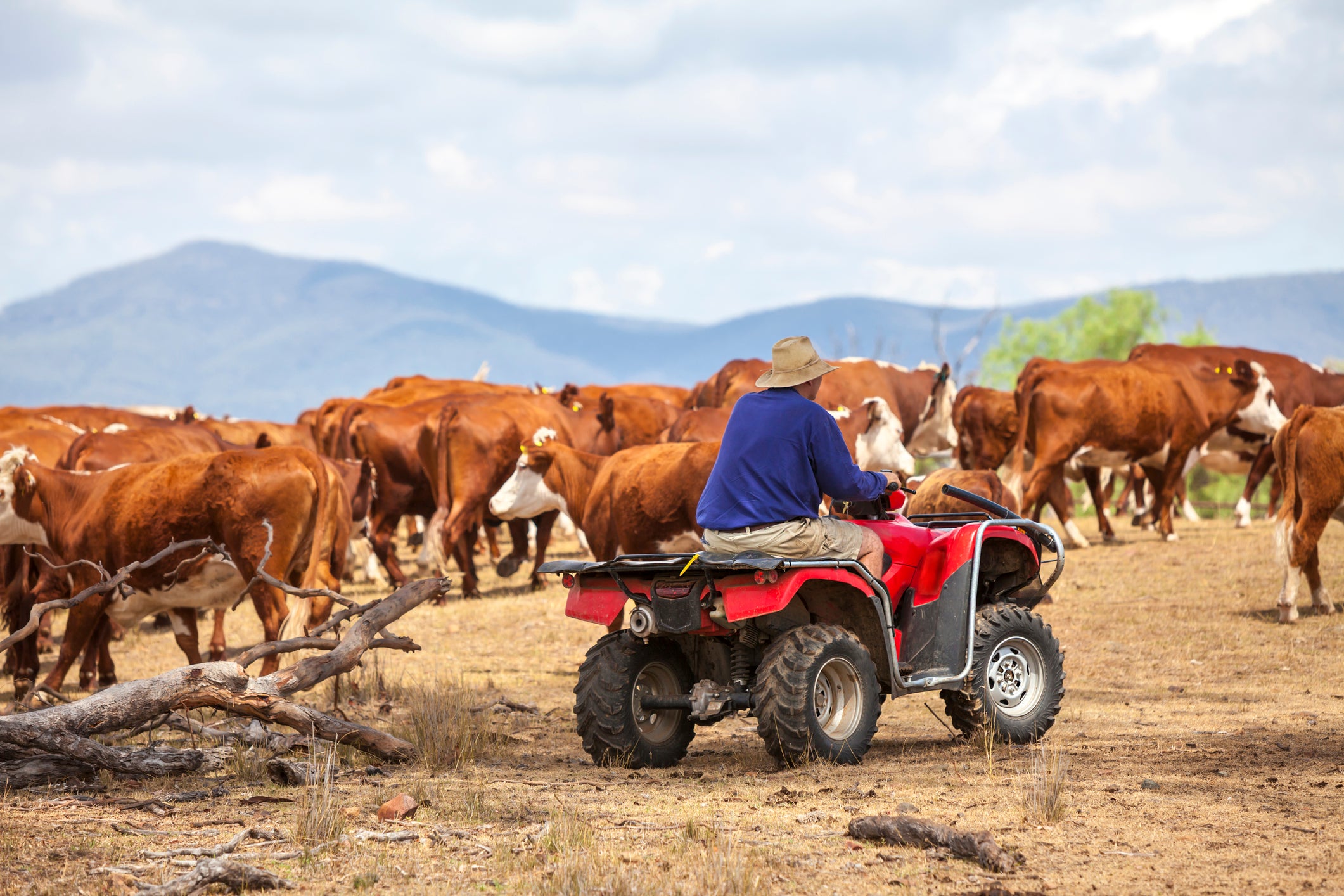Why are British farmers worried about a trade deal with Australia?
Farmers say a deal could damage UK agriculture and start a price war

Your support helps us to tell the story
From reproductive rights to climate change to Big Tech, The Independent is on the ground when the story is developing. Whether it's investigating the financials of Elon Musk's pro-Trump PAC or producing our latest documentary, 'The A Word', which shines a light on the American women fighting for reproductive rights, we know how important it is to parse out the facts from the messaging.
At such a critical moment in US history, we need reporters on the ground. Your donation allows us to keep sending journalists to speak to both sides of the story.
The Independent is trusted by Americans across the entire political spectrum. And unlike many other quality news outlets, we choose not to lock Americans out of our reporting and analysis with paywalls. We believe quality journalism should be available to everyone, paid for by those who can afford it.
Your support makes all the difference.The UK is in the process of negotiating a trade deal with Australia, as part of its post-Brexit attempt to link up with countries outside the EU. Despite its likely small economic benefit, the government is desperate to sell an agreement to the public as a benefit of Brexit, but not everyone is happy.
Why are farmers concerned?
Farmers are warning of "damage" to UK agriculture if Australian beef and lamb producers are given tariff-free access to UK markets.
Tariffs and quotas exist to protect domestic producers from competition, and UK farmers fear they can't compete with Australian agriculture, which is conducted on a much larger scale.
“I cannot the state the damage that I feel it would do,” Minette Batters, president of the National Farmers Union, said on Tuesday.
The argument is that Australian producers could start a price war and kill off British producers. While this might be good for consumers, it would be bad for the industry and the people who it employs.
What about other countries?
The farmers also worry that opening markets to Australia could set a precedent in future negotiations, for instance with the United States.
This would be even tricker for UK farmers. US regulations are notoriously less stringent and farmers say the competition would be unfair.
“The conversations I have with the US, with the New Zealanders, with the Canadians, they would definitely be looking for the same,” said Ms Batters.
“If we give away our negotiating capital to Australia, which is the second-largest exporter of beef in the world, second to Brazil, the others would most definitely want it.”
What does the government think?
The government is generally behind the idea of tariff free access in principle, but how it is done is a broader question.
There's reportedly a split in the cabinet over the issue - with Liz Truss pushing for a more open version of the deal and the environment and food secretary George Eustice more resistant.
He wants a longer transition period to give British farmers more time to adjust.
But Boris Johnson appears more likely to be coming down on the side of Ms Truss.
During Prime Minister’s Questions on Wednesday, Mr Johnson said the UK had grown "successful and prosperous" on the back of exporting products around the world.
He told MPs: "Our food exports are second to none. He should be proud of that."
The issue is expected to be trashed out at a crunch cabinet meeting on Thursday.
The Department for International Trade said: “Any deal we sign with Australia will include protections for the agriculture industry and will not undercut UK farmers or compromise our high standards. We will continue to work with the industry, keeping them involved throughout the process and helping it capture the full benefits of trade.”
Join our commenting forum
Join thought-provoking conversations, follow other Independent readers and see their replies
Comments